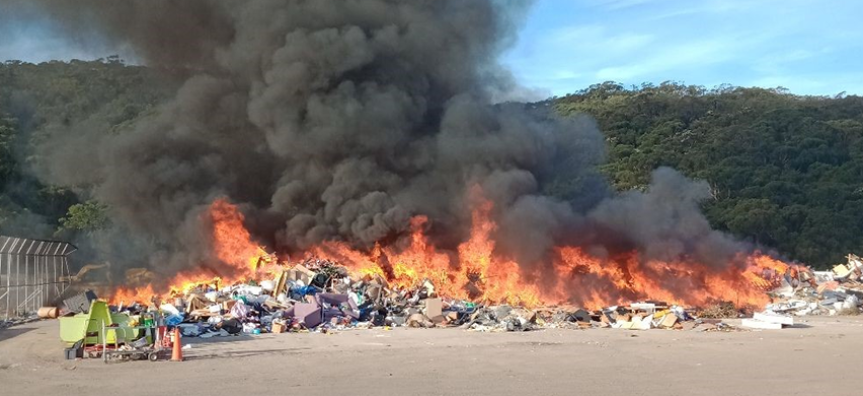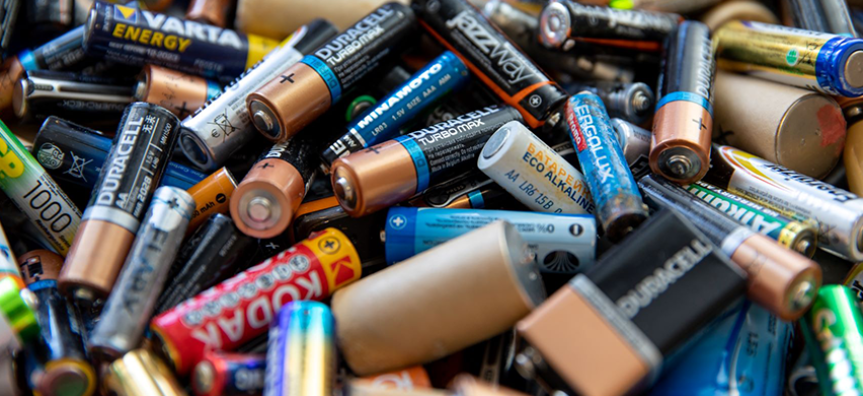Batteries might be small, but they’re creating big problems for workers and our environment on the Northern Beaches. Without safe disposal, used and unwanted batteries can create fire hazards and leak toxic materials. Batteries don’t belong in the bin and they should never end up in landfill.
Even used batteries may contain residual charge which can create a spark and start a fire. This puts workers in danger at all stages of waste collection and disposal - from picking up and transporting waste to uncovering battery hazards in landfill.
Staff at Kimbriki have recently experienced a number of near misses from overheated batteries that have ended up in landfill.
Batteries also contain toxic metals including cadmium, mercury and lead which can be dangerous for the environment, leaking into waterways and ecosystems.
Always remove batteries from items before placing them in the bin or taking them to Kimbriki.
Safely dispose of your used or unwanted batteries for free at these battery recycling locations:
- ALDI (AAA, AA, C, D and 9V batteries)
- Battery World (lead acid batteries)
- Bunnings (AAA, AA, C, D, 9V, 6V, power tool batteries, button cell batteries and other handheld sized batteries)
- Household Chemical CleanOut event (car and household batteries)
- Kimbriki Resource Recovery Centre, Ingleside (all battery types)
- Officeworks (AAA, AA, C, D, 9V, laptop and mobile phone batteries)
- Woolworths (AAA, AA, A, C, D, 9V and button batteries, mobile phone batteries, smartwatches, fitness trackers)
If you’re taking batteries to Kimbriki for recycling, head to drop-off point 5 (mixed waste) to dispose of your mobile phones and household, rechargeable and button cell batteries in the specially marked bins. Or head to drop off point 3 (household waste) to place your lead acid batteries, including those from cars, trucks, motorbikes or boats, in the special marked area.
Remember to tape battery terminals with clear sticky tape before dropping them off at any of these recycling collection points. This will prevent the battery terminals from touching, sparking and catching fire.
Store and transport your batteries in a fire-resistant container, such as a glass jar, and place leaking batteries in a ziplock bag.
Learn how to tape, store and drop off your batteries for safe disposal.
For a full list of battery recycling drop off points near you visit Battery Stewardship Council (B-cycle). For more information see our A-Z guide to reuse, recycling and waste disposal.


